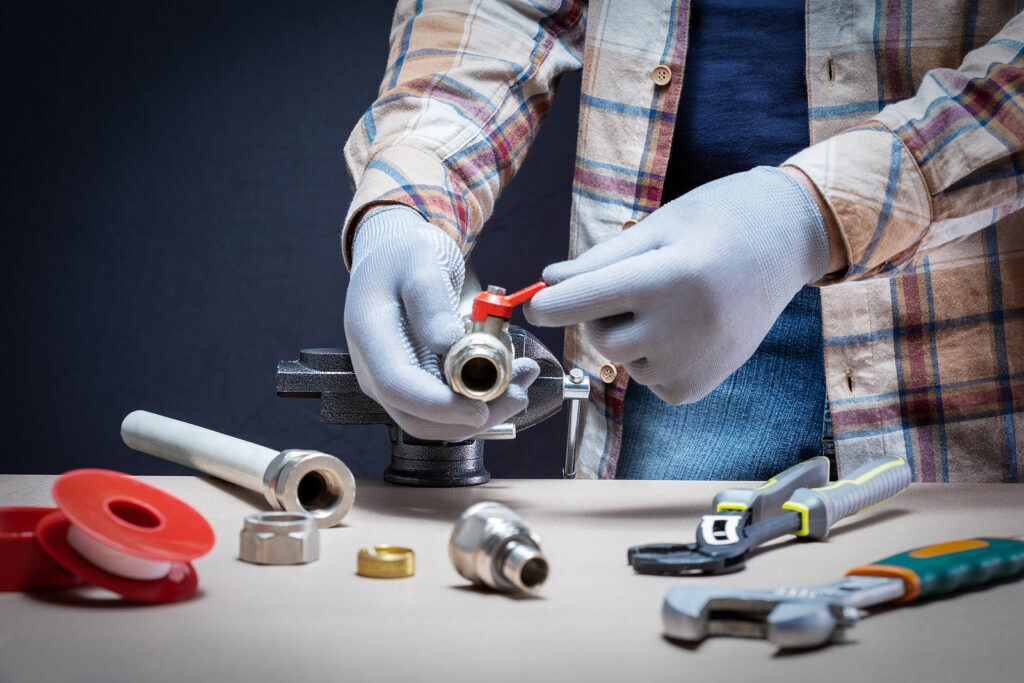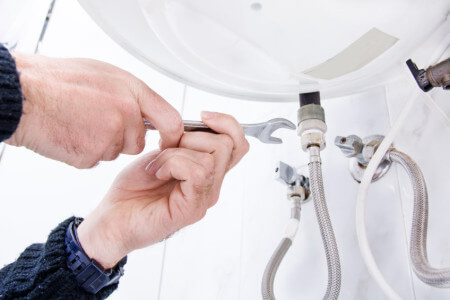In this article on the next paragraphs you can get a bunch of quality tips involving Plumbing Emergencies: Tips on What To Do Before.

Pipes emergencies can strike at any moment, creating tension and possible damage to your home. Whether it's a ruptured pipeline, a blocked drainpipe, or a leaky tap, knowing exactly how to handle the situation till an expert plumber shows up can save you from additional problems. This post provides necessary emergency plumbing pointers to assist you minimize damage and reclaim control during a pipes crisis.
Switch off the Supply Of Water
The very first step in any plumbing emergency situation is to shut off the water. For local issues, such as a dripping faucet or bathroom, switch off the valve near the fixture. When it comes to a major leak or ruptured pipe, find your home's major water shut-off valve and turn it off promptly. Recognizing the area of these valves beforehand can save useful time during an emergency situation.
Address Small Leaks with Temporary Fixes
Tiny leaks can quickly end up being considerable issues if left untreated. Make use of these short-lived solutions till professional help arrives:
- Pipe Tape or Epoxy Putty: Apply waterproof tape or epoxy putty to temporarily seal the leak.
- Rubber and Clamp Method: Cover an item of rubber or an old internal tube around the leakage and safeguard it with a pipe clamp or air duct tape.
- Containers or Towels: Location containers under the leakage to include water and protect against damages to floor covering or furniture.
- While these fixes aren't permanent, they can assist reduce water loss and damages.
Unclog Drains Pipes Securely
A clogged up drainpipe can be an irritating and unpleasant concern. Here's how to tackle it: - Use a Plunger: For sinks or toilets, a plunger can frequently remove minor clogs. Guarantee you make use of the proper sort of bettor for the component.
- Warm Water and Recipe Soap: For grease-related obstructions, pour a mix of hot water and meal soap down the tubes to break up the grease.
- Avoid Chemical Drain Cleaners: While alluring, chemical cleansers can create even more damage than great, particularly to older pipes.
- If these approaches do not function, prevent utilizing extreme force, as it might aggravate the obstruction.
Manage Overflowing Toilets
An overflowing commode can create instant mayhem. Here's what you should do: - Quit the Water Circulation: Remove the container cover and push down on the flapper valve to stop water from getting in the dish. Shut off the supply of water to the toilet if essential.
- Dive Carefully: Use a commode bettor to remove the blockage, yet prevent aggressive plunging, which can create spilling or additional damage.
- Have the Spill: Usage towels or a wipe to tidy up water quickly to prevent floor covering damages.
Shut Off Your Water Heater
In particular emergency situations, such as a ruptured pipe, it's important to turn off your water heater. This protects against getting too hot or damages to the system when water stops streaming. Turn off the power supply to the hot water heater (electric or gas) and allow it cool off to avoid possible risks.
Temporarily Quit a Ruptured Pipe
A burst pipe can lead to substantial water damages in minutes. To alleviate the issue:
- Clamp or Wrap the Pipeline: Use a pipe clamp, rubber, or duct tape as a short-lived seal.
- Divert Water Circulation: If possible, divert the water right into a bucket or container to limit damages to surrounding areas.
- Maintain the Area Dry: Use towels or a wet/dry vacuum cleaner to eliminate standing water.
- Call an expert plumber right away to attend to the problem completely.
Manage Frozen Pipes Carefully
In colder climates, frozen pipes are an usual emergency. If you believe an icy pipe: - Turn Off the Water: Shut down the primary water supply to avoid a burst pipeline.
- Defrost Slowly: Utilize a hairdryer, heating pad, or warm towels to thaw the pipeline slowly. Avoid open fires or severe heat, as these can harm the pipe.
- Inspect for Leakages: Once the pipe is thawed, check for fractures or leakages before transforming the water back on.
Prevent Further Damages
Taking fast activity to reduce damage can save you time and money over time. Right here's how:
- Move Valuables: Eliminate furnishings, electronics, and other things from the affected location.
- Usage Sandbags: For flooding circumstances, area sandbags around the area to redirect water.
- Shut down Electrical power: If water has actually gotten to electrical outlets or home appliances, switch off the electrical power to avoid shocks or fires.
. Have an Emergency Situation Plumbing Set
Prepare a fundamental pipes emergency kit to manage minor problems properly. Your set needs to include:
- Flexible wrench
- Plumbing's tape
- Pipeline secures
- Towels and rags
- A bettor
- Epoxy putty
- Pail.
- Having these tools available can make a considerable distinction in your capacity to take care of emergencies.
Know When to Call a Professional.
While quick fixes can assist briefly, certain plumbing problems call for instant professional interest. Call a plumbing technician if:. - A burst pipe triggers substantial flooding.
- Drains pipes or commodes continue to be stopped up regardless of your efforts.
- You discover consistent leakages or water stress problems.
- Your water heater is dripping or malfunctioning.
- Promptly calling a professional makes sure the concern is resolved properly and prevents further issues.
Verdict.
Pipes emergencies can be frustrating, yet with the best understanding and devices, you can take care of the scenario efficiently until help gets here. By shutting off the water, dealing with little leakages, and utilizing temporary solutions, you can minimize damage and maintain your home safe. Bear in mind, these pointers are short-lived remedies; always seek advice from a qualified plumbing to manage the source of the issue. Preparation and quick reasoning are your finest allies in any type of pipes emergency.
8 Helpful Tips for Managing Plumbing Emergencies at Home
If your plumbing system hasn’t failed once, wait for it because almost everyone has a story to tell. Sometimes, it could be simple emergencies such as a leaking pipe, a blocked cistern, or even a big burst pipe. In situations like this, you need to have some handy tips to save you some money and from possible damages.
Take care of minor issues early.
Sometimes, you could have avoided an emergency by taking proactive measures while it was still early. Some major plumbing emergencies can be a result of an ignored minor issue. We recommend that you have items like plumbing tapes and other related items. A plumbing tape can allow you to manage minor leaks before the plumber arrives.
Cut off the water supply.
This tip is essential in almost any type of leakage problem. For problems like minor leakages in the toilet or kitchen, turn off the supply that takes water to the affected pipes. If the leakage is a major pipe, you must shut off the supply valve to the entire building. This will help you avoid flooding your home and neighbors if you share a flat.
Know your plumbing system
Folks typically move into a new apartment without understanding the water supply around the building. This can prove disastrous if a water emergency arises and the plumber is far away. The previous tip will prove useless if you don’t practice this one. More importantly, know where your water shut-off valve is located – you’ll need that knowledge to prevent potential home floods.
Have some common handy tools
There are lots of plumbing emergencies that you can handle without hiring a plumber. That’s why you must keep some tools available always. Some tools that you can use to fix simple plumbing emergencies easily include plumbing tapes, screwdrivers, thread seal tapes, plungers, pliers, tape measures, and rubber gloves.
Insulate your pipes from cold
You’ll save yourself from many plumbing expenses if you protect your water pipes from the cold. This is because of the harmful effects that cold weather can have on your pipes. During winter, your pipes can burst from being overly expected to freezing temperatures. So, make sure insulators are there to keep the pipes working correctly.
Avoid practices that will clog your toilet.
Many people indulge in practices that can damage the plumbing system of the entire building. One of these is when they use their toilet to dispose-off garbage. They flush all kinds of things, such as paper towels, bandages, hairs, female sanitary products, etc., down the toilet. This will block your toilet in the long run, incurring unnecessary expenditures. Dump such waste in the trash instead.
Check your dials regularly.
Sometimes, there could be leakages in your home without noticing them in time. So, constantly monitor your water meter dial. If the dial is reading when there is nobody using water, this is an indicator that there is leaking. Check for leaks immediately. Call a plumber as soon as possible if you can’t find any.
https://www.constructionplacements.com/8-helpful-tips-for-managing-plumbing-emergencies-at-home/

I discovered that article on What to Do During a Plumbing Emergency when doing a lookup on the web. For those who enjoyed our post if you please make sure you remember to pass it around. Thank you for your time. Don't hesitate to come by our blog back soon.
Estimating
Comments on “Important Advice for Urgent Issues: How to Until Help Arrives”